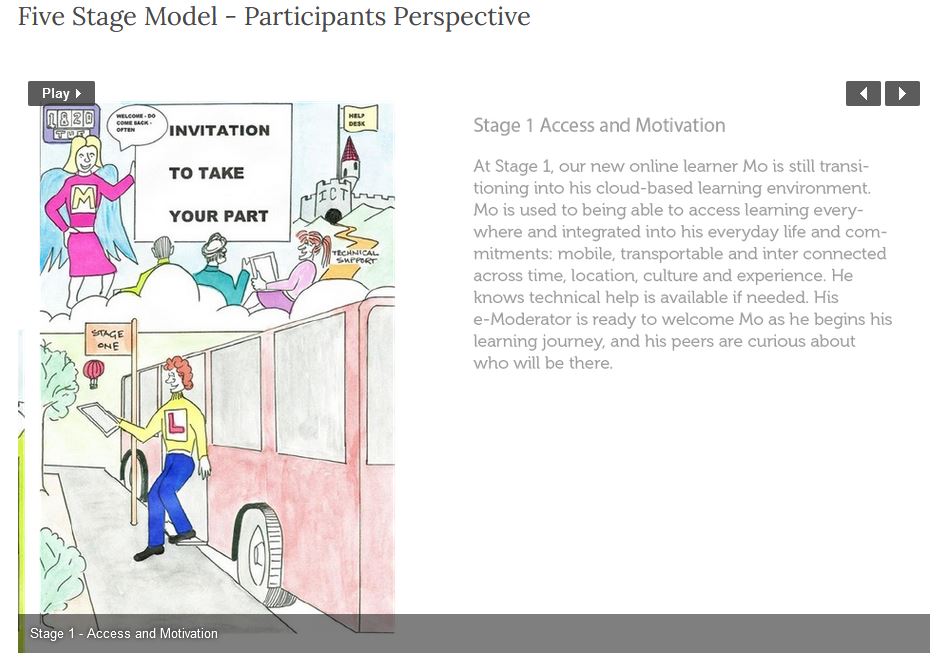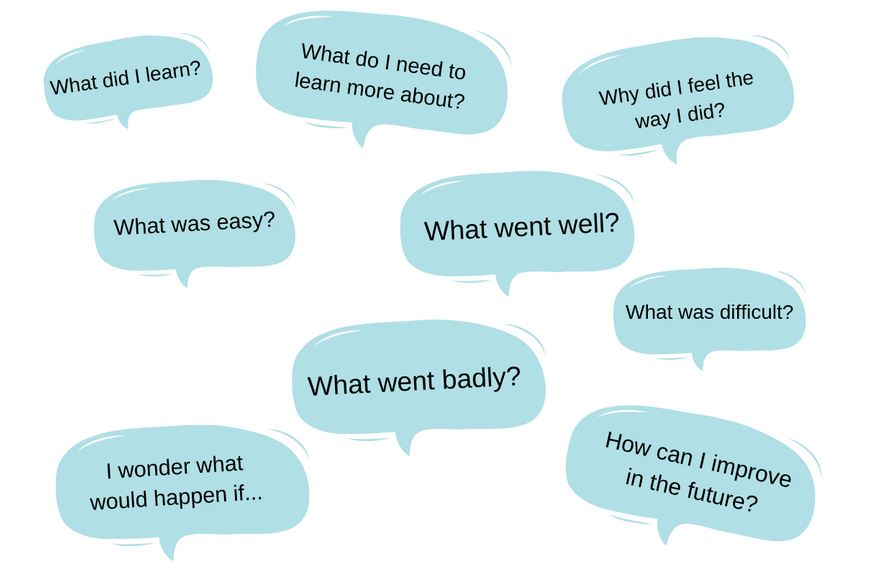Stage 5 - Let your Students become Masters

Introduction
In this final stage, your students will work independently with their peer groups (and also with the content and with you). They can provide impulses for a discussion and keep it going. Once this stage is reached, one can also speak of a learning community. Your role switches more and more to a learner’s guide. You as online facilitator could indicate interesting sources of information that enable your students to develop their skills once more. Interesting events in this phase could be, for example, theme-based "events" with practitioners, designers, artists, and other filmmakers.
The concept of Reflective Practitioner
In terms of sustainability of individual online learning, your students should focus on reflecting on the learning process. It is important for the learners to become aware of their own learning style and their own learning habits and to reflect on the jointly gained learning experiences in order to derive adequate learning strategies for the future.
“Reflective practice is the ability to reflect on one's actions to engage in a process of continuous learning. “ Donald A. Schön
If you want to know more about how professionals think in action or the concept of The Reflective Practitioner of Donald Alan Schön, US-American philosopher and professor of city planning, dive deeper with this article Reflective Practice Toolkit with a reflective questions transcript.
How is the learner’s perspective of the 5-stage model
Now your time as online facilitator starts. What do you think? Would your students enjoy your online course?
On Gilly Salmons webpage you will find a very metaphoric video about the Five Stage Model - Participants Perspective as drawing which is shown in the third contribution on this page.

We wanted to explore new territory with this toolkit. Our intention was to develop a vision for the future of film education. We welcome you to be part of the journey and contribute to creating the future of film teaching. Maybe you would like to tell us about your experiences. Then you're invited to submit it here.
You may also be interested in working with other film teachers and us on the future of film teaching. We therefore established the "future.film.education - Last Tuesday" - meetup. Every last Tuesday of the month we will meet from 18:00 – 19:00 (CEST) in a casual setting to exchange questions and ideas, inform and keep each other updated, have fun, reflect, make plans and learn from each other. Please join the LinkedIn group or mail our online trainer to receive the login: Dr. Eva Maria Bäcker |
Literature and references about online teaching and learning
If you are interested in discovering more about the basics of online teaching and e-learning research, you will find some more insightful information here:
- International Journal on E-Learning (IJEL)
- Open Learning: The Journal of Open
- Distance and e-Learning
- International Review of Research in Open and Distributed Learning
- Journal of Distance Education / Revue de l'ducation Distance
Scimago Journal & Country Rank offers a ranking of journals on e-learning. The field of distance education is dynamic and constantly evolving, reflecting and adapting to changes in sociocultural, demographic, political, and technological areas. Therefore, it is necessary to understand the past and present activities in the field in order for future scholarship to be better informed. Of interest is the development of distance education's areas of focus. The first paper Review of Distance Education Research (2000 to 2008): Analysis of Research Areas, Methods, and Authorship Patterns, a research project in which one of our team members participated, reviews the distance education literature from 2000 on. Articles published in five well-known distance education journals between 2000 and 2008 were examined. The conclusion shows that distance education research is heavily dominated by issues of instructional design and individual learning processes, while other important areas (e.g., innovation and change management or intercultural aspects of distance education) are alarmingly neglected. Over 80% of all articles come from only five countries.
The second paper Trends and Patterns in Distance Education (2014–2019): A Synthesis of Scholarly Publications and a Visualization of the Intellectual Landscape ties in with the first. The outcomes identify three main strands of distance education research: issues related to open education; the design, support, and quality assurance of online teaching; and the implementation and use of educational technology, media, and digital tools.
